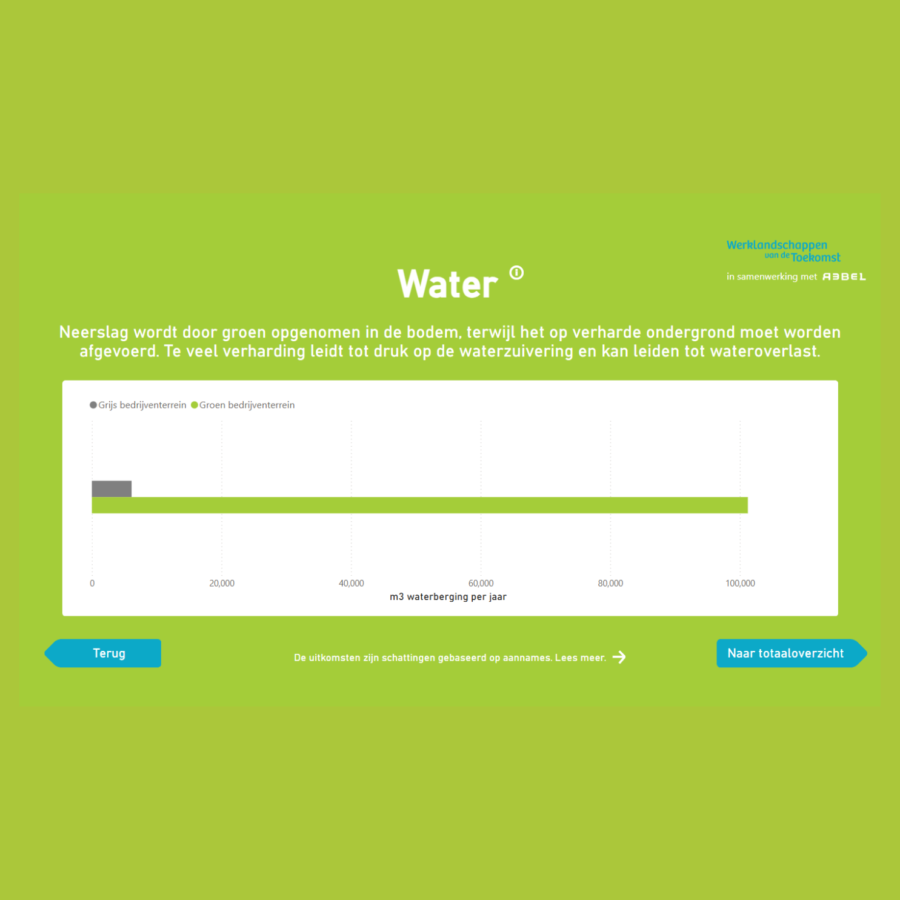A tool for greening business parks
nature
Reason
Greening is an opportunity for the 3,800 business parks in the Netherlands to make the working environment more attractive. The costs of a green transition usually come up quickly. The benefits, however, do not. If the benefits come up at all, it is often a messy discussion due to unfamiliarity. Different effects of greening, such as on health and water management, are not clearly distinguished. Nor is the extent of the effects among those involved. Moreover, the benefits are questioned by stakeholders and it is not clear if and to whom they land.
Commissioned by the Province of Zuid-Holland and the Work Landscapes of the Future programme, Rebel has developed a tool that can estimate the costs as well as the effects, benefits and beneficiaries at an early stage of a transition. This changes the conversation, and we talk about investing in green instead of costs.
For whom
The tool is intended for the frontrunners in business parks: municipalities, provinces, entrepreneurs, property owners and other parties who are at the forefront of making the transition to a green business park.
Functioning of the tool
By simply entering the surface area of the business park, a calculation can be made of the (social) costs and benefits of greening. This immediately provides a rough estimate of the effects of greenery and associated stakeholders, and provides a reason for discussion.
Background
The 3,800 business parks in the Netherlands are under pressure. Investment has lagged for years, and the layout is currently focused purely on functionality. This makes many business parks an unpleasant working environment. Companies of the future, which are increasingly competing for talent, stay away, or leave, for that reason. That causes vacancies and falling property values. Moreover, business parks are highly hardened, suffering from unhealthy environments and climate problems.
More nature on business parks is an important part of the solution. It creates a healthier, more attractive working environment, has aesthetic value and is an important tool to address climate issues. This is why greening business parks is a key spearhead of the Work Landscapes of the Future programme, in which Rebel is working on scaling up to 1,000 business parks, among other things.
However, greening requires joint investments by municipalities and entrepreneurs, and this poses a major challenge. After all, most of the positive effects of more nature are not achieved with a single pubic forest. For more significant benefits, such as water storage, heat reduction and creating an attractive workplace, a significant amount of new nature needs to be added. Only when this realisation permeates a large group of stakeholders will the ball start rolling.
Using the tool
The aim is to eventually make the tool available online. However, the results of the tool still require some explanation. For instance, a change in the underlying assumptions can significantly affect the results. Therefore, the tool will be further tested and developed in the coming months.
Also interested in using the tool? Please contact Jan Smelik / jan.smelik@rebelgroup.com
